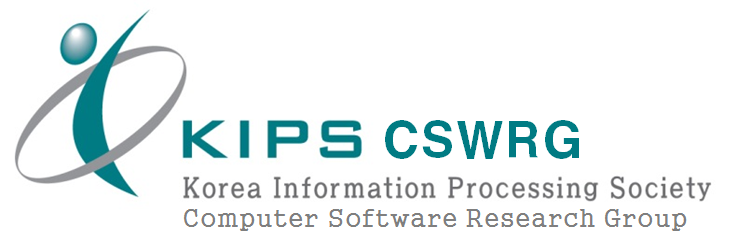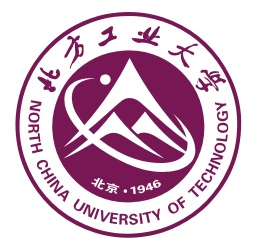
  |
Call for Papers
Download : TXT
The new multimedia solutions and ubiquitous computing environments facilitate the seamless integration of diverse kinds of intelligent devices based on multiple modalities into interoperable multimedia frameworks. These key technologies of multimedia solutions and ubiquitous computing environments interact and collaborate with each other in increasingly effective ways across a wide spectrum of consumer, business, healthcare, education, and governmental domains.
This conference provides an opportunity for academic and industry professionals to discuss recent progress in the area of multimedia and ubiquitous environment including models and systems, new directions, novel applications associated with the utilization and acceptance of ubiquitous computing devices and systems.
MUE2016 is the next event in a series of highly successful the International Conference on Multimedia and Ubiquitous Engineering, MUE2015(Hanoi, Vietnam, May 2015), MUE2014(Zhangjiajie, China, May 2014), MUE2013(Seoul, Korea, May 2013),MUE2012(Madrid, Spain, July 2012), MUE2011(Loutraki, Greece, June 2011), MUE2010(Cebu, Philippines, August 2010), MUE2009(Qingdao, China, June 2009), MUE2008(Busan, Korea, April 2008), and MUE2007(Seoul, Korea, April 2007).
Organizing Committee
==Steering Chair==
James J. Park, SeoulTech, Korea==General Chairs==
Albert Zomaya, University of Sydney, AustraliaHai Jin, Huazhong University of Science and Technology, China
Gangman Yi, Gangneung-Wonju National University, Korea
Laurence T. Yang St. Francis Xavier University, Canada
Cho-Li Wang, The University of Hong Kong, Hong Kong
Jianhua Ma, Hosei University, Japan
==Program Chairs==
Yunsick Sung, Keimyung University, KoreaWei Song, North China University o fTechnology, China
Chengcui Zhang, The University of Alabama at Birmingham, USA
Ching-Hsien (Robert) Hsu,Chung Hua University, Taiwan
Lei Wang, Dalian University of Technology, China
==Workshop Chairs==
Jungho Kang, Sungsil University, KoreaXu Shuo, ISTIC, China
Yizhi Ren, Hangzhou Dianzi University, China
Shangguang Wang, Beijing University of Posts and Telecommunications, China
==International Advisiory Committee==
Doo-soon Park, SoonChunHyang University, KoreaShu-Ching Chen, Florida International University, USA
Young-Sik Jeong, Dongguk University, Korea
Han-Chieh,Chao National Ilan University, Taiwan
Weijia Jia, Shanghai Jiaotong University, China
Hwa-Young Jeong, Kyung Hee University, Korea
Borko Furht, Florida Atlantic University, USA
Thomas Plagemann, University of Oslo, Norway
Roger Zimmermann, National University of Singapore, Singapore
Stephan Olariu, Old Dominion University, USA
Yi Pan, Georgia State University USA
Koji Nakano, University of Hiroshima, Japan
==Publicity Chairs==
Wei-Bang Chen, VSU, USAKehua Guo, Central South University, China
Zhi Li, Guizhou University, China
Ruisheng Shi, Beijing University of Posts and Telecommunications, China
Sung-Ki Kim, Sunmoon University, Korea
Kuan-Ching Li, Providence University, Taiwan
Namje Park, Jeju National University, Korea
==Local Committee Chairs==
(Pending)==Program Committee==
http://www.mue-conference.org/2016/pc.htmlWe are inviting new and unpublished papers on, but not limited to, the following topics:
- 1. Multimedia Modeling and Processing - Media Representation and Algorithms
- 2. Multimedia and Digital Convergence - Home Entertainment Devices
- 3. Ubiquitous and Pervasive Computing - Ubiquitous Computing and Technology
- 4. Ubiquitous Networks and Mobile Communications - Tiny Operating systems and Middleware Supports
- 5. Intelligent Computing - Artificial Intelligence
- 6. Multimedia and Ubiquitous Computing Security - Key Management and Authentication
- 7. Multimedia and Ubiquitous Services - Multimedia RDBMS Platforms
- 8. Multimedia Entertainment - Music and Movie Distribution
- 9. Other IT and Multimedia Applications
- Audio, Image, Video Processing, Coding and Compression
- Computer Graphics and Simulation
- Image and Signal Processing
- Multimedia Information Retrieval
- Multimedia Indexing
- Multimedia Network Transmission/Streaming
- Multimedia Standards and Related Issues
- Multimedia Databases, Content Delivery and Transport
- Current Challenges in Multimedia
- Multimedia Tools
- 3D Video, Recording, Storage, Compression, Transcoding
- Cooperative Driving and Associated Automotive Technologies
- Advances and Challenges in HD Device Interconnects
- Green-Home Consumer Electronics Technologies
- Gesture and Expression Recognition
- Smart Grid
- Power Line Communication
- Robot/Drone Control, Mobile Robotics/Drones
- Consumer Electronics (CE) device platform
- CE operating system
- CE device driver/firmware
- Context-Aware Ubiquitous Computing
- Physical Model of UI & SW
- Ubiquitous Database Methodologies
- Embedded Systems and Softwares
- Human-Computer Interaction
- Human Centric Computing
- High-performance Computing and Simulation and Modeling
- Wearable, Personal and Body Area Systems
- Context Modeling and Reasoning
- Adaptive and Context-Aware Computing
- Smart Object
- Multimodal Sensing
- Intelligent Platforms
- Internet of Things
- Parallel/Distributed System
- Grid and Cloud Computing
- Novel Machine Architectures
- Peer to Peer Network
- Machine-to-Machine Communications
- Mobile System Performance
- Wireless Communications
- Wirless Sensor Network
- Wireless Body Area Network
- Internet Access and Mobility
- Trustworthy Internet and Communications
- Mobile Data Management and Processing
- Cross-Layer Design and Optimization
- Algorithms and Protocols for Cognitive Wireless Networks
- Ad Hoc and Sensor Network
- Vehicular Ad Hoc Networks and Vehicular Technology
- WiMax/Wi-Fi, UWB, Bluetooth Technology
- Beacon Technology
- Mobility Management
- Smartphone and Mobile Devices
- Social Networks and Computing
- Pattern and Speech Recognition
- Fuzzy Logic and Soft Computing
- Neural Networks and Applications
- Expert Systems
- Reinforcement Learning
- Behavior Network
- Deep Learning
- Decision Support Systems
- Automated Problem Solving
- Semantic Web and Knowledge Grid
- Knowledge Discovery and Representation
- Knowledge Acquisition
- Intelligent Web-based Business
- Intelligent Agents and User Interface
- Intelligent Information Fusion
- Authorization and Access Control
- Privacy and Trust Management
- Sensor Networks and RFID Security
- Security in Ubiquitous Databases
- Multimedia Information Security
- Intellectual Property & Licensing
- Digital Right Management
- CAS/STB Security
- Digital Forensics
- Watermarking
- Security in Commerce and Industry
- Multimedia in Telemedicine
- Multimedia Embedded Systems
- Multimedia Standards
- Mobile Multimedia System and Services
- U-City and U-Town
- Smart Highway
- Smart Work
- Intelligent Transport Systems
- Location Based System
- Telematics
- Virtual Reality and Game Technology
- Mobile Gaming and Entertainment
- Location Based Services
- Ambient Intelligence
- Smart Home/Building/Spaces
- Green IT Services
- Semantic Web and Grid Services
- Smart-Camera and Multi-View Systems
- Surveillance System
- Entertainment Industry for MUE
- Ubiquitous Database Methodologies
- U/E Healthcare Services
- U/E-Commerce and Education
- QoS and Security Support for Entertainment
- 3D TV for Entertainment
- Computer Animation
- Technology for Entertainment
- Agent-based Entertainment
- Interactive Television and Theatre
- Massive Multiplayer Games
- Mobile and Wireless Entertainment
- Digital Interactive Storytelling
- Pervasive Entertainment
- Personalized and User-Adapted Television
- Sport, News and Entertainment
- Wearable Entertainment
- Wireless and Mobile Gaming
- Digital Entertainment and Sports
- Digital Entertainment and Pleasure
- Games for Special Audiences
- Human Computation Games
- Multimedia User Interfacer
Important Date
Round II ----------
Paper submission due: Feb. 25, 2016 (Final Extension!!!)
Accept notification: Mar. 5, 2016 (Final Extension!!!)
Camera-ready paper due: Mar. 15, 2016 (Final Extension!!!)
Registration due: Mar. 15, 2016 (Final Extension!!!)
Conference/Workshop dates: April 20-22, 2016
Round I ---------
Paper submission due: Dec. 30, 2015 (Closed)
Accept notification: Jan. 15, 2016 (Closed)
Camera-ready paper due: Jan. 25, 2016 (Extension)
Registration due: Jan. 25, 2016 (Extension)
Conference/Workshop dates: April 20-22, 2016
Submission and Publication
- Please DO NOT repeatedly create new paper id with the identical paper in our editorial system.
When more than two identical papers are submitted in the editorial system, the papers will be rejected (without review process).
If any problems, please contact to leading program chair. - In case of more than two withdrawals of accepted papers, the author will be placed on a blacklisted in our DB by the MUE 2016 policy. We will NOT allow your submission to MUE 2016 Confs., SIs, and events.
There will be a combination of presentations including scientific papers. Prospective authors are invited, in the first instance, to submit papers for oral presentations in any of the areas of interest for this conference.
Authors should submit a paper based on page limitation including all figures, tables, and references. If you want to submit more than page limitation, you can add up to 2 extra pages with the appropriate fee payment.
All accepted papers will be included in the conference proceedings published by Lecture Notes in Electrical Engineering (LNEE) - Springer (indexed by EI and SCOPUS).
Authors should submit a paper with 5~6 pages in length, including all figures, tables, and references.
If you want to submit more than page limitation, you can add up to 2 extra pages (total MAX. 8 pages) with the extra page charges (100 USD per page).
Papers exceeding the page limits will be rejected without review.
Instructions for papers in the Springer's LNEE is as follows.(Note that the paper format of LNEE is the same as that of LNCS)
Prepare your paper in the exact format as the sample paper for LNEE. Failure to do so may result in the exclusion of your paper from the proceedings. Please read the authors' instructions carefully before preparing your papers. Springer accepts both Microsoft Word and LaTex format in the Lecture Note Series.
However, we DO NOT accept the use of LaTex. Therefore, you should use the Microsoft Word instead of using LaTex (The paper will be excluded from the proceeding if you use LaTex).
Springer provides the relevant templates and sample files for both PC (sv-lncs.dot) and Mac (sv-lncs) environments.
Please download word.zip
If you need more help on preparing your papers, please visit Springer's LNCS web page (http://www.springer.com/computer/lncs?SGWID=0-164-2-72376-0).
** You can download the sample from here **
All accepted papers will be included in the conference proceedings as one of Lecture Notes in Electrical Engineering (LNEE) series published by Springer (indexed by EI & SCOPUS).
Distinguished accepted and presented papers in MUE 2016, after further revisions, will be published in the special issues of the following international journals (Pending):
- The Journal of Supercomputing (JoS) - Springer (SCI)
- Multimedia Tools and Applications (MTAP) - Springer (SCIE)
- Human-Centric and Information Sciences (HCIS), Springer (SCOPUS)



** This is the current index status of the journal. However, the journal indices may be changed due to several reasons. In that case, we are not responsible for it
** When authors recommend potential reviewers for their paper, the recommended reviewers' countries must be different.
** The recommended authors MUST strongly keep the recommendation guideline for the submission.
Submission system: http://www.confmanager.net/mue2016
Contact
If you have any questions about the CFPs and papers submission, please email to Prof. Yunsick Sung (mue2016.conf@gmail.com)